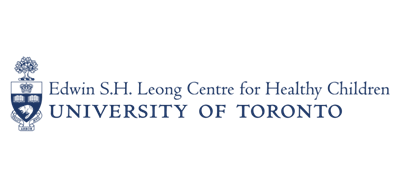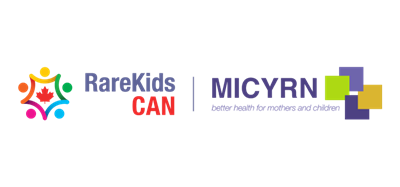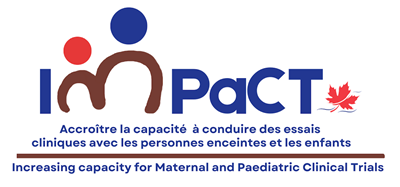
Child Health Policy Accelerator
The SickKids Child Health Policy Accelerator is Canada’s first hospital-based applied child and youth health and social policy initiative. It aims to close the gap between what we know is effective in optimizing the well-being of children and youth, and what we do to attend to the needs of young people in the provincial and federal public policy space.
The Child Health Policy Accelerator is designed to:
- enable change by leveraging the expertise, resources, and reputation of SickKids to enable clear and focused policy objectives designed to deliver positive evidence-based change for children and youth in Canada, and;
- train the next generation of change-makers through formal instruction, project-based consultation and longitudinal advocacy experiences for current and future maternal and child health leaders.
The Child Health Policy Accelerator employs a structured and rigorous process to set policy objectives. Comprehensive strategies are developed and applied to each area of focus, ensuring a high-impact approach to equitable, evidence-based policy change.
Policy Objective
To ensure that regulatory protections for all nicotine-containing products, including those regulated under both the Food and Drugs Act (FDA) and the Tobacco and Vaping Products Act (TVPA), reflect global best practices in limiting youth exposure and addiction.
Background
Canada’s first synthetic nicotine pouch was approved in 2023 under the Natural Health Product (NHP) regulations of the Food and Drugs Act. As an NHP, the product was not subject to key safeguards—such as restrictions on point of sale, age of sale, advertising, and promotion—that apply to cigarettes and e-cigarettes regulated under the Tobacco and Vaping Products Act (TVPA). Recognizing the significant risk to young people, the Child Health Policy Accelerator successfully advocated for a federal Ministerial order to act as a stop-gap measure, preventing youth access to synthetic nicotine pouches. However, this action was a temporary stop-gap measure. Industry pressure to reverse the expanded regulatory authority is mounting, and a coordinated, evidence-informed advocacy campaign is urgently needed to ensure these protections are made permanent.
This work has been undertaken—and will continue—in close coalition with leading national health charities. Together, we are committed to ensuring that all effective federal strategies to reduce youth exposure to, and addiction from, nicotine-containing products are fully implemented.
Policy Objective
To advance comprehensive, child-focused federal online safety legislation that establishes an independent online safety regulator with strong enforcement powers and a clear mandate to address both content-related and design-based harms to young people associated with online platforms.
Background
Despite mounting evidence of harm, Canada continues to lag behind leading jurisdictions in protecting children online—a striking and unacceptable public policy failure. At least 20% of Canadian children report experiencing negative impacts from online activity. These self-reported harms include compulsive internet use, feelings of decreased self-worth, body dysmorphia, engagement in self-harming behaviours, and cybervictimization. Younger children also experience harms unique to their developing brains, including emotional and behavioural dysregulation and impairment in acquisition of essential social skills.
Unlike other areas of children’s lives—such as television advertising or food labeling, both of which are governed by child-specific regulatory frameworks—Canada lacks comprehensive legislation aimed at safeguarding young people in digital environments. In contrast, leading jurisdictions have robust meaningful legislative and regulatory frameworks to keep children safe online.
Digital platforms that host user-uploaded content must not be allowed to facilitate or ignore harmful content. Effective parental controls, age-verification programs and age-appropriate terms of service must all be mandatory. Moreover, manipulative design features, such as algorithmically driven engagement tactics that exploit developmental vulnerabilities of young users, should be prohibited. To achieve this, Canada must establish an independent online safety regulator with the authority to enforce strong, evidence-informed protections for children and youth in digital spaces.
Policy Objective
To establish a complete exemption pathway for low-risk pediatric clinical trials investigating drugs routinely used in clinical practice, aligning Canada with peer jurisdictions while saving both valuable time and research dollars.
Background
Currently, Health Canada regulates all pediatric clinical trials studying treatments that are not ‘on label’ for pediatric use – including routine treatments like oxygen, salt water, ibuprofen and acetaminophen. As a result, trials investigating commonly used therapies must adhere to the same regulatory standards as studies involving brand new molecules or novel gene-based or cellular therapies. These regulatory requirements increase trial costs by an average of 20%, create unnecessary bureaucratic requirements for researchers, and do not increase patient safety. A complete regulatory exemption would bring Canada in line with peer jurisdictions, including Australia, the United Kingdom and the United States, while saving both time and research dollars.
Policy Objective
To reform the Special Access Program to ensure that children with rare and life-threatening illness have access lifesaving treatments that are not available on the Canadian market, without unnecessary bureaucratic delays and without being routed through research pathways when the sole purpose of the therapy is clinical care.
Background
Pediatricians and pharmacists caring for seriously and critically ill children often require medications that are not available in Canada. Currently, clinicians must apply to Health Canada’s Special Access Program (SAP) and receive Health Canada approval before accessing these essential treatments. The SAP receives more than 16,000 applications annually, many of which involve therapies that are already proven to be safe and effective, and are approved for use in trusted foreign jurisdictions. For these routinely accessed therapies, the SAP serves no function other than delay and administrative burden. The program should be reformed to allow medical professionals to treat their patients first and notify Health Canada afterward.
For innovative therapies not available on the Canadian market, Health Canada currently requires clinicians to initiate a single-patient clinical trial (also known as an OLIP or SPS) to facilitate access. This process is complex, costly, resource-intensive, and most critically, it delays urgently needed care. When the intent is treatment, not research, Health Canada should establish streamlined application and monitoring requirements for accessing novel therapies from outside the country.
From Burden to Benefit: Streamlining Access to Non-Marketed Drugs in Canada (PDF)
Policy Objective
To exercise existing reliance authorities under the Food and Drug Act (FDA) in order to expedite on-market, on-label access to medications and child-friendly formulations identified on the National Priority List of Pediatric Drug Act (NPLPD).
Background
In 2024, Health Canada released the draft National Priority List of Pediatric Drugs (NPLPD). Developed through a robust national consultation with Canada’s pediatric and pharmacy communities, and adjudicated by a multi-disciplinary panel of child health experts, the NPLPD identifies essential drugs that are unavailable in Canada, lack appropriate pediatric labelling or lack a child-friendly formulation, despite being accessible with appropriate labelling and formulations in the United States and European Union. Drugs that are not available in Canada must be imported through the pathway outlined above, while drugs that are available but not labelled or formulated for pediatric use are less safe, and often ineligible for reimbursement from provincial health plans.
Health Canada’s regulatory reliance mechanisms offer a promising opportunity to encourage manufacturers to bring these essential therapies to the Canadian market—making them eligible for review by the Canadian Drug Agency and, ultimately, for public coverage. Delays in using all available regulatory tools to secure access to NPLPD-listed products continue to compromise the safety, effectiveness, and equity of care for Canadian children.
Response to Health Canada’s Consultation on the National Priority List for Pediatric Drugs (NPLPD)
Policy Objective
To mandate the submission of pediatric drug data with all new (NDS) and supplemental (SDS) drug submissions to Health Canada, when pediatric use can be expected or anticipated.
Background
Canada is more than three decades behind international best practice in mandating the submission of pediatric data with new and supplemental drug submissions. As a result, Canadian children are significantly more likely to receive “off-label” care than their peers in comparable countries around the world. In addition to the well documented risks of off-label prescribing, a critical lack of evidence-based pediatric-specific indications undermines child-focused health technology assessments and, by extension, limits public reimbursement for essential medications.
In February 2024, Health Canada launched a pilot program to encourage the voluntary submission of pediatric data. As expected, uptake has been limited. To align with trusted regulators around the world, Health Canada should make the current voluntary pediatric development plan (PDP) pilot mandatory and permanent. Without mandatory submission of pediatric data, Canada risks continuing a long-standing pattern of regulatory neglect for children.
Supporting Precision Child Health
Aligned with the Precision Child Health movement, the Child Health Policy Accelerator will pair new discoveries and groundbreaking research with advocacy to advance evidence-based precision policy across Canada.
Calls mount for Carney government to revive Trudeau-era online harms legislation
National Post, September 10, 2025
Pediatricians Urge Carney Government to Prioritize New Online Safety Law
Tech Policy Press, July 17, 2025
Ottawa pressed to split online harms bill to fast-track its passage
The Globe and Mail, June 24, 2025
Quebec goes to war with social media
The Logic, June 2, 2025
Federal officials draft plans to ban social media for children under 14
The Globe and Mail, January 21, 2026
Online harms bill to be split in two after being stuck in Commons, held up by filibustering
The Globe and Mail, December 4, 2024
Canada’s paediatric drug regulations put children at unnecessary risk
The Hill Times, April 6, 2022
Edwin S.H. Leong Centre for Healthy Children, University of Toronto, April 23, 2025
Key collaborators
Thoughtful collaborations with leading individuals and organizations will fuel the Child Health Policy Accelerator.
This work is generously supported by SickKids Foundation and the LCBO.










